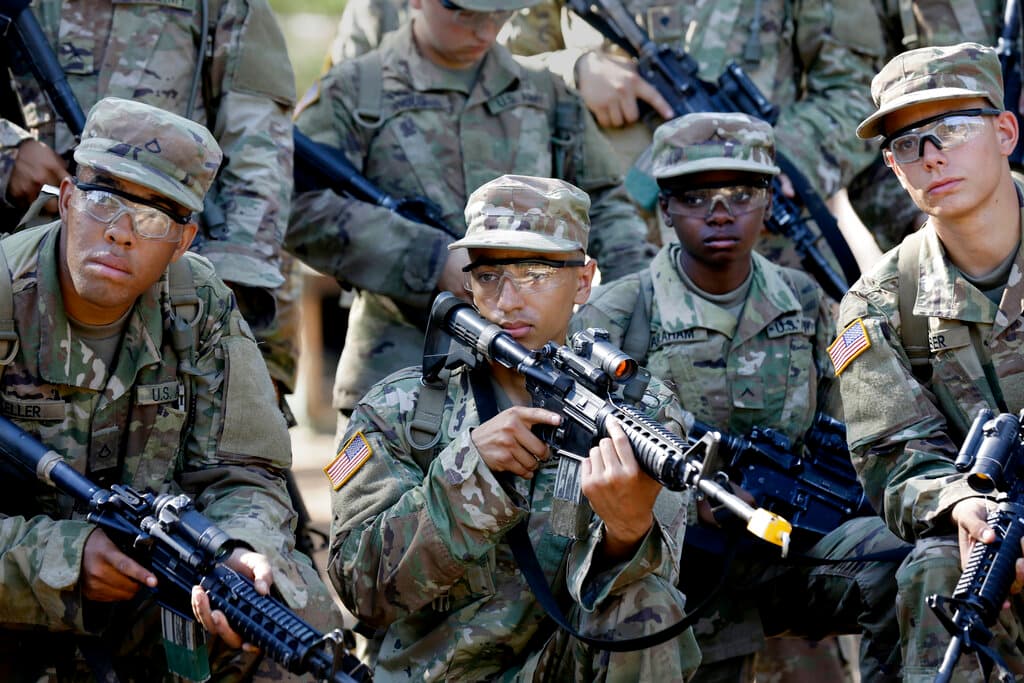As War Threatens To Go Global, Is It Time To Bring Back the Draft?
Charlie Rangel might see the draft as a brake on the rush to war. Fair enough. It could, though, spell the difference between winning and defeat if war does break out.

With the world now what one former Royal Navy chief calls but six steps from a global conflict, forgive us if we raise one of our favorite topics — the draft. It happens that Congressman Charlie Rangel and we are the only New Yorkers we know in favor of the restoration of a draft. It’s hard, for us at least, to see what’s so all-fired illogical about it. Our volunteer army has trouble recruiting the soldiers it needs, while America’s young adults languish.
We were thinking about this in light of the astonishing alacrity with which Israelis are responding to the call-up of reservists in the Jewish state; they have called up some 360,000 almost overnight. Should the need arise, could America do something proportional, calling up, say, 18 million reservists on short notice? It strikes us that this matter could use some attention before, say, Communist China puts a military runway on one island too many.
Or sooner, if there’s anything to the warning by the former head of Britain’s navy, Admiral Lord West. In remarks to London’s Sun, he dilates on the prospect that Israel’s war against Hamas could “go really wrong” and quickly ramp up into a regional war involving Iran. That, in turn, could bring into the conflict Russia and Saudi Arabia. “If things really go wrong,” he warns, NATO, and thus America, would get involved “because this might turn into a fight.”
It’s not our intention here to weigh the plausibility of Lord West’s vision of what the Sun, in its understated way, calls an “all-out world war in six terrifying steps.” At a time, though, when Communist China threatens the democratic Republic of China on Taiwan and Russian troops still occupy much of Ukraine in a war whose outcome is uncertain, it is worth appraising how it is going to raise such armies as it might shortly need.
For 50 years, America has borne its responsibilities as a superpower with an “all-volunteer force.” A dispatch in the Atlantic in July noted that ending the draft “gave most Americans the freedom to be indifferent to their military,” but shifting “the burden of service to a smaller, self-selected cohort of citizens” now “appears unsustainable.” Others, these columns have noted, warn that relying on volunteers won’t meet the Pentagon’s future needs.
America’s all-volunteer military is “too small to handle a major war or emergency,” analysts Jason Dempsey and Gil Barndollar reckon in the Atlantic. They note that “two medium-size campaigns,” in Iraq and Afghanistan, stretched the volunteer military thin, “despite constant mobilization of reservists” and “the enlistment of local allies.” They contend that a “major conflict would break” the volunteer military, calling it “an open secret in defense circles.”
This is, Messrs. Dempsey and Barndollar say, “something that few in Washington want to discuss.” We can see why. We’re not aware of any politicians favoring the draft, other than the retired solon, Mr. Rangel, who appeared in arms in Korea and emerged by any definition a war hero. He sees the draft as a brake on the rush to war. Even a rumor of a restored draft just led the Defense Department to insist it isn’t so much as under consideration.
Considering how critical a draft was to America winning two world wars, does this posture risk emboldening our enemies? Our foes might take heart, too, at the condition of America’s draft-eligible youth, as sketched by Messrs. Dempsey and Barndollar say. They warn that just 23 percent of draft-age Americans “are eligible to enlist without a waiver, pointing to “obesity, medical and mental-health issues, or a history of substance abuse.”
It doesn’t help, in Messrs. Dempsey and Barndollar’s telling, that but 9 percent of draft-age Americans “would seriously consider military service,” near the “all-time low” since the draft ended. It raises too much of a question by our lights about America’s ability to fight a major war — even if the kind of escalation feared by Lord West fails to develop. A revival of the draft now, though, could go a long way toward victory if war does break out.

